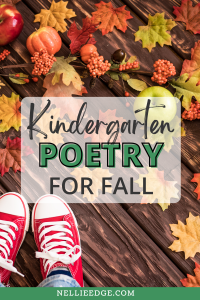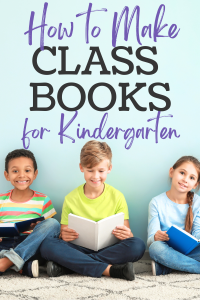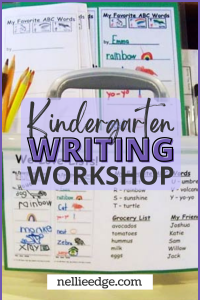Excellence in Kindergarten and Early Literacy
Meeting the Challenge of High Common Core Standards
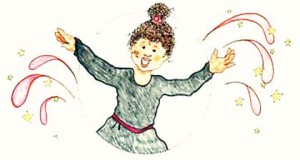 What do I mean by “excellence in kindergarten literacy,” and why am I asking for a coalition of early childhood experts and educational institutions to collaborate in providing quality ongoing professional development networks for kindergarten and early literacy teachers? When it comes to excellence, I believe it can be best defined in the results. True excellence will be seen in motivated, engaged children with empowering memories of learning to read and write and the stamina for independent acts of literacy. These are the children who meet high Common Core Standards in literacy and beyond.
What do I mean by “excellence in kindergarten literacy,” and why am I asking for a coalition of early childhood experts and educational institutions to collaborate in providing quality ongoing professional development networks for kindergarten and early literacy teachers? When it comes to excellence, I believe it can be best defined in the results. True excellence will be seen in motivated, engaged children with empowering memories of learning to read and write and the stamina for independent acts of literacy. These are the children who meet high Common Core Standards in literacy and beyond.
Brain-Friendly Learning within a Joyful, Language-Intensive Environment
Excellence in kindergarten literacy is the vital foundation for bridging the achievement gap and building schools of ambitious, self-regulated readers and writers. Professionally, I cannot separate one aspect of excellence in literacy from the total experience of immersing children in meaningful activities within a stimulating, caring community of learners. I cannot separate authentic literacy experiences and powerful, research-based teaching from the affective elements that support an optimal kindergarten environment – the respect, high expectations, and care shown to the individual child and their family. Experiences in the educational arts engage children’s multiple ways of knowing while promoting creative and higher-order thinking; they take advantage of how the young child’s brain learns best. Developing social-emotional intelligence supports children in being successful in school. . .and in life. Writing is the key that unlocks the alphabetic code. So, my definition of excellence includes cooperative learning, rich experiences in the arts, science exploration, respectful and supportive parent connections, a language-intensive “writing-to-read” environment, systematic phonemic awareness through songs, and an explicit multisensory ABC and phonics immersion program within a comprehensive literacy framework of:
Language Play — Everyday
Books and Songs — All Day Long
Differentiate Instruction to Support and Challenge Individual Learners
Our kindergarten classrooms are diverse, hosting children with their own unique strengths, varied prior language learning experiences, and preferred learning styles. Excellence in kindergarten literacy acknowledges the complexity inherent in meeting the individual needs of today’s learners. It is vital that teachers provide intentional, focused instruction that is challenging and supporting enough for every child to be successful while simultaneously developing language and reading skills. Kindergarten teachers with strong early literacy insights know how to do this and do it well. Knowledgeable, caring teachers combine a scientific understanding of the writing and reading process, a love of learning, and the wisdom of practice to build rigorous and joyful environments that honor individual learners.
Kindergarten is for Language
It is familiarity with the English language that precedes and underlies excellent phonemic awareness instruction. It is this familiarity that allows a child’s decoding to be error-free and their reading to be fluent. We must skillfully accelerate language learning – both thinking and oral communication – if we are to take a proactive approach to bridge the achievement gap and prevent later reading difficulties. As teachers, we must provide experiences that make language come alive, dramatically articulating and fluently modeling the sounds of language. We invite kindergartners to rehearse language as singers, signers, and storytellers. Lively discussion about quality fiction and nonfiction allows us to connect books with children’s lives and provide the vehicle for explicit teaching of comprehension strategies. We memorize, recite, and perform language. We differentiate instruction, honoring children’s initial “magical memory reading” and skillfully transitioning them to guided and independent reading. We are conscious that listening comprehension comes before reading comprehension. Our curriculum invites children to communicate and interact. Developing the child’s capacity for language and thought underlies everything we do in kindergarten.
Build Positive Habits of Mind and Excellence in Literacy Through the Arts
When I think of the language of math and the many science explorations that connect children to the natural world outside the classroom, I am always conscious that we are building the vocabulary and experience base to support children as ambitious readers and writers and disciplined, creative thinkers. Rich experiences in the many languages of art, music, drama, dance, and storytelling help children find personal meaning in school literacy. We want them to have the motivation to put their hearts and minds into the learning process. Developing literacy skills can be at least partially assessed. More important teaching – the love of language, the respect and care children develop for others, the willingness to express themselves and take risks, and the self-discipline, stamina, and responsibility to follow-through on projects – is not easy to measure. These goals are the bigger picture of why we do what we do. They are the foundation for excellence, the habits of mind that all children deserve and need to acquire.
Teach Children Traditional Songs in English, Spanish and Sign Language
When we teach children beautiful, traditional songs in English, Spanish, and American Sign Language to enhance literacy and build friendships within our multiethnic communities, it is with the hope that these respectful bonds will go with the children into the years beyond kindergarten. With happy hearts, we dance and sing. We want children to care and share and work and play together because this creates healthier, happier lives for them and ultimately healthier, happier communities. We also know, as Ralph Peterson so wisely reminds us in his book, Life in a Crowded Place, “Once you get the community right, the levels of learning soar.” Because the human brain is uniquely designed to learn through music, our kindergarten days are filled with singing; our instruction systematically connects these songs to the printed lyrics for fluent reading.
Immerse Children in Beautiful Language Models
When we choose only the finest literature, songs, poems, and nursery rhymes to give our children, it is because we know these language models are the seeds that grow powerful writers, thinkers, and lovers of language. We want imaginative thoughts and language, poetic phrases, and metaphors to become a part of our children. These memorable sounds of language will forever be on the walls of their minds, and so we ask, “Is this worthy of the children?” Walter de la Mare, in Bells of Grass, speaks so eloquently: “I know well that only the rarest kind of best in anything can be good enough for the young.”
Children Learn Collaboration and Build Social-Emotional Skills
Aware of how important a child’s social-emotional development is, we model appropriate social interactions and structure the classroom so children can collaborate, make choices, and move in and out of different social settings. We think of the critical life choices these children may face just five or six short years down the school road. We know the kindergarten child who finds meaning and a sense of belonging in school now is more likely to make healthy choices and to remain in school in the years that follow.
Parents Are Partners in Developing Literacy and Fostering a Love of Nature
We recognize that parents are the child’s first and most important teachers and that all parents inherently want their children to be successful in school. Parental support and collaboration multiplies our teaching effectiveness. Respectful and caring bonds with families are the cornerstones for healthy schools and higher literacy standards. Parents are partners with kindergarten teachers in awakening a love of nature in children and exploring the natural world outside the classroom. Families look at the changing stars, gather leaves, collect rocks, and take bird-watching walks with their child. This gives the child compelling reasons and inspiration for reading and writing. Parents also collaborate with us daily in teaching “The ABC Phonics: Sing, Sign, and Read! Song.” They anticipate hearing the Read and Sing books, quality literature, and engaging nonfiction that their child brings home. Parents make a nightly “reading at home” commitment because they know repeated readings of real books build real readers. Parent volunteers in the classroom help us to expand and enrich our curriculum to better meet individual needs. The literacy partnership and understanding that parents gain through kindergarten involvement, workshops, conferences, field trips, and newsletters, have long-term benefits for the child and for younger siblings who will soon join the school community. Ernest Boyer aptly describes this parent-teacher partnership as a “covenant.” When the child starts kindergarten, we have a “covenant” that says, “We jointly share responsibility for teaching your child.”
We Bond with Each Child and Nurture Friendships
It is our genuine bond of caring for each child that creates a safe emotional environment for learning. We illustrate through these personal relationships our expectations for how children will treat each other. We teach children to use respectful language because we want them to speak to their classmates and others in their lives in kind and helpful tones so their voices will be heard. We want our children to experience being a teacher and a learner within a safe community of friends. We model for children and provide practice in how to listen and give polite feedback. We show them how to work cooperatively and include others. Children who learn to say, “Thank you for asking me, but I already have a partner. I’ll be your partner tomorrow,” are learning kindness. The social harmony nurtured in an empowering, noncompetitive environment gives children the psychological safety to develop their skills and honor the best efforts and unique gifts of their peers. A caring atmosphere allows friendships to blossom and children to thrive.
Writing Teaches Reading, and Reading Teaches Writing
The journey to understanding the alphabetic code begins with musical, multisensory ABC and phonics immersion strategies, including signing and fingerspelling. These strategies accelerate letter/sound knowledge by taking advantage of how the young child’s brain learns best. As these new skills are reinforced by daily “kid writing,” children learn how reading works. Accomplished kindergarten teachers give children strategies to begin writing and to perceive themselves as writers and illustrators from the very first day of school. Within the context of writing, we systematically assess and reinforce phonics instruction so children learn to apply decoding skills. Drawing and writing experiences in a stimulating environment are meaningful and motivating for the young child. We give children challenging but achievable literacy tasks, such as efficiently printing their names and writing “I love you.” We encourage them to work diligently and form each letter correctly, knowing these relevant tasks are the building blocks of confidence, fluency, and stamina for much bigger writing accomplishments. Instant recognition of a growing collection of high-frequency words is explicitly taught and celebrated. We are amazed at the power of daily “kid writing,” developing kindergartners who understand how words work and accelerating reading independence through this process.
Kindergarten is a Celebrative Place
We weave learning rituals, traditions, and celebrations into the everyday life of the classroom. We celebrate friendships and our connection to the world around us through songs, dances, and caring rituals. There are special ways we greet the children in the morning to create a sense of belonging and a positive mental focus for learning. Our end-of-the-day closure traditions send children out the door with a feeling of completeness and anticipation for the next school day. Children enjoy seasonal festivities that foster a relationship and respect for nature. We celebrate children’s individual literacy accomplishments, such as authoring a book and mastering the “ABC Phonics Song.” Children sit proudly in the author’s chair when they present their new book. When a child takes the “ABC and Phonics Challenge” (to see if they can name every letter and sound) and wins, we cheer and present them with a decorated certificate. Memorable learning rituals, traditions, and celebrations are the heart of our kindergarten. They build positive mental attitudes, create a sense of belonging, enhance our learning, and strengthen our relationships. They keep the joy and wonder of childhood alive.
The Kindergarten Literacy Experience Must Be Empowering
Bruno Bettleheim’s research reminds us that how children perceive themselves in the act of learning to read generalizes to the whole self-concept. How skillfully and successfully we build literacy skills and develop a love of reading can influence a child’s beliefs about their personal worth and ability to learn for a lifetime. There is no packaged program that could possibly meet the diverse language and literacy needs and honor the unique cultural backgrounds children bring to kindergarten. Scripted programs do not understand human motivation. However, given quality, ongoing professional development and support, kindergarten teachers can model, instruct, and guide with knowledge, developmental sensitivity, and renewed energy. As reflective practitioners, we can build a scaffold of success for every child, every day—from the child who is just learning to speak English to the child who is enthusiastically writing and reading their own books. We can foster habits of the mind that support literacy independence through positive approaches that simultaneously nurture a greater sense of self-worth in each child.
Kindergarten is Still a Child’s Garden
Young children deserve a positive, comprehensive approach to literacy development within a joyful, caring community of learners. . .a child’s garden. Their lives must be valued, celebrated, and incorporated into the literacy curriculum so they will care about school, learn to make responsible choices, and meet high Common Core State Standards. For most young children, kindergarten is the important formal beginning of a K-12 literacy journey. Excellence in Kindergarten and Early Literacy means building skills, attitudes, and beliefs that engender self-discipline, motivation, and a love of learning – right from the beginning of that important journey. Children deserve challenging, emotionally engaging literacy instruction and active participation in a nurturing, meaning-centered classroom. This is not an easy task, but it is one that deserves our combined resources, passion, and energy. It is our kindergarten contribution to. . .
Creating Schools Worthy of Our Children:
Joyful and Rigorous Learning Communities That Accelerate Literacy
Nellie Edge Online Seminars
Grow Your Kindergarten Writers Build Stamina for the Writing Workshop
• ABC Phonics
• Kindergarten Handwriting
• Authentic Sight Word Work
Nellie Edge teaches you essential skills designed from 30 years of experience in step-by-step videos:
Seminar #1: Multisensory ABC and Phonics Immersion
Seminar #2: Kindergarten-Friendly Handwriting Matters!
Seminar #3: Authentic Sight Word Work
WITH EACH SEMINAR YOU'll RECEIVE:
- Unlimited Access to Online Video Tutorials
- Companion Teacher's Guide
- Coordinating Classroom Resources - ready to use!
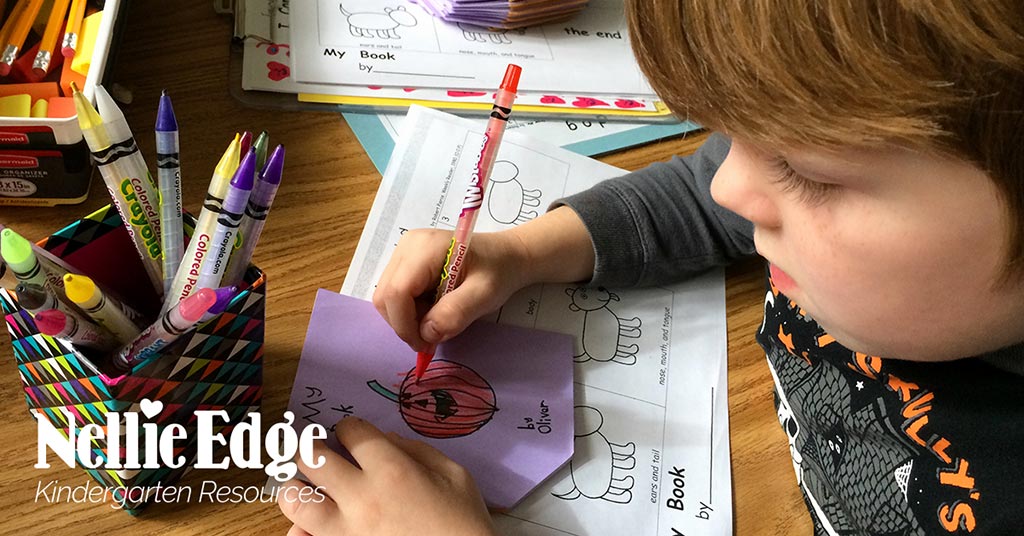
Get our weekly blog for more high-impact strategies and free resources!


